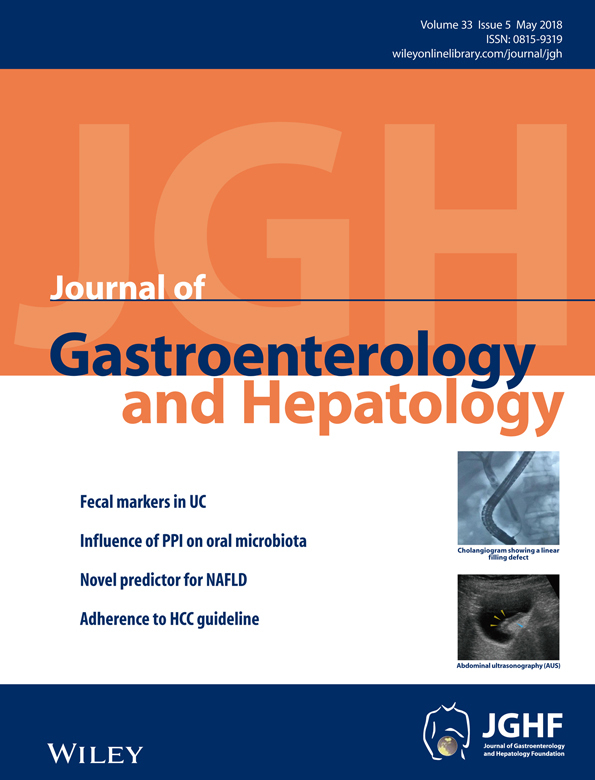Long-term retention of adalimumab treatment and associated prognostic factors for 1189 patients with Crohn's disease
Abstract
Background and Aim
There are few studies on the long-term efficacy of adalimumab treatment for patients with Crohn's disease. We have conducted a large, multicenter, retrospective cohort study to evaluate the long-term retention rate and prognostic factors associated with the discontinuation of adalimumab treatment in patients with Crohn's disease.
Methods
Data were collected from all patients with Crohn's disease who had received at least one induction dose of 160 mg of adalimumab between October 2010 and December 2013 at 41 institutions. The cumulative retention rates of adalimumab treatment following the first administration were estimated using the Kaplan–Meier method. Prognostic factors related to the cumulative retention rates were evaluated by log-rank tests and multivariate Cox regression analysis.
Results
A total of 1189 patients were included in the study. The 1-, 2-, 3-, and 4-year cumulative retention rates of adalimumab were 81%, 72%, 65%, and 62%, respectively. The multivariate Cox regression analysis confirmed female sex, previous infliximab use, perianal disease, concomitant treatment with prednisolone at baseline, higher C-reactive protein levels, and lower albumin levels as significant independent predictors of poor retention rate of adalimumab treatment. Significantly, more female patients than male patients discontinued adalimumab because of adverse events, especially skin reactions, infections, and arthralgia.
Conclusions
Our data demonstrated a good retention rate of adalimumab in patients with Crohn's disease over a 4-year period. Female sex, perianal disease, concomitant treatment with prednisolone at baseline, previous infliximab use, higher C-reactive protein levels, and lower albumin levels were associated with poor retention of adalimumab treatment.




